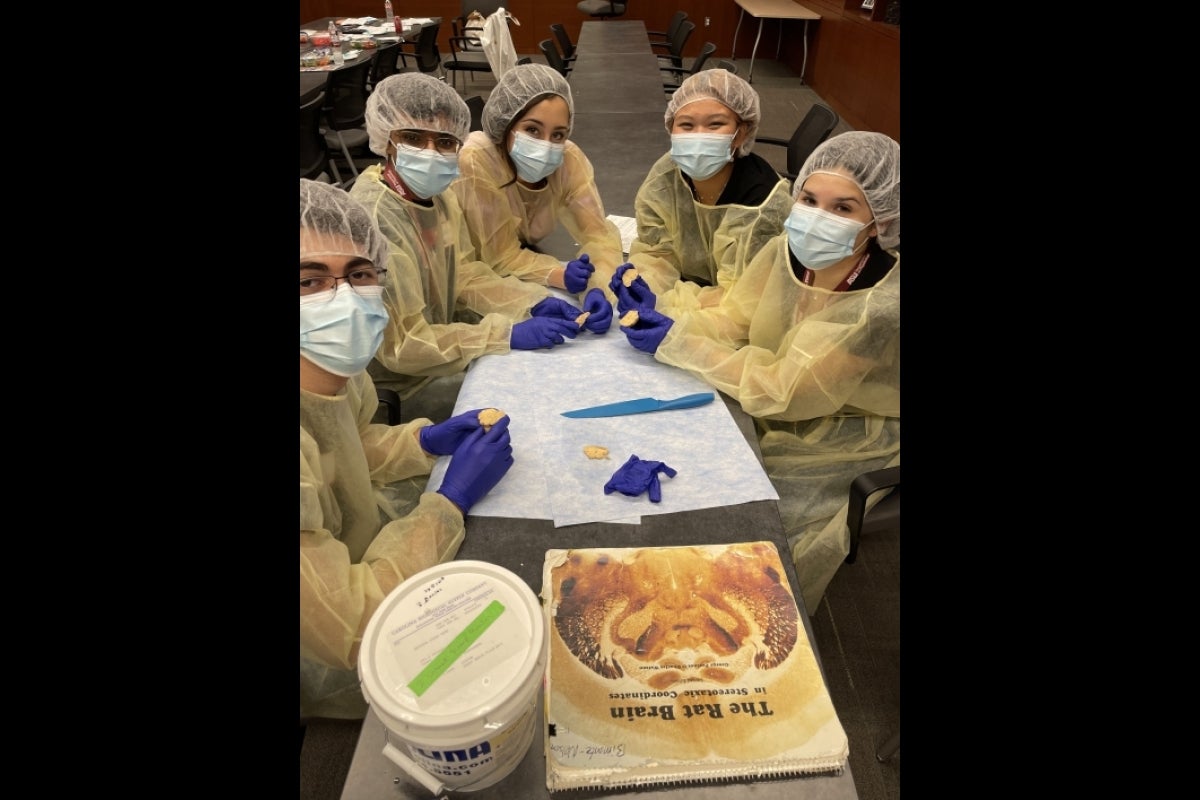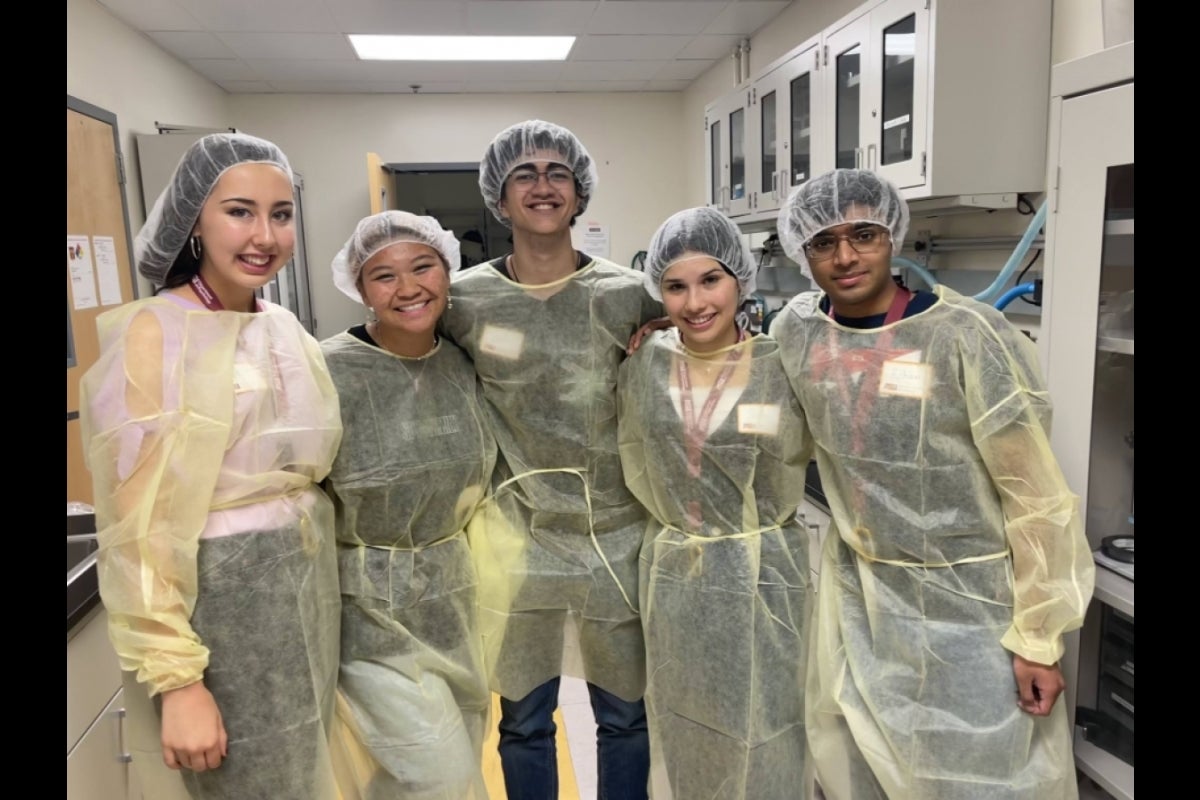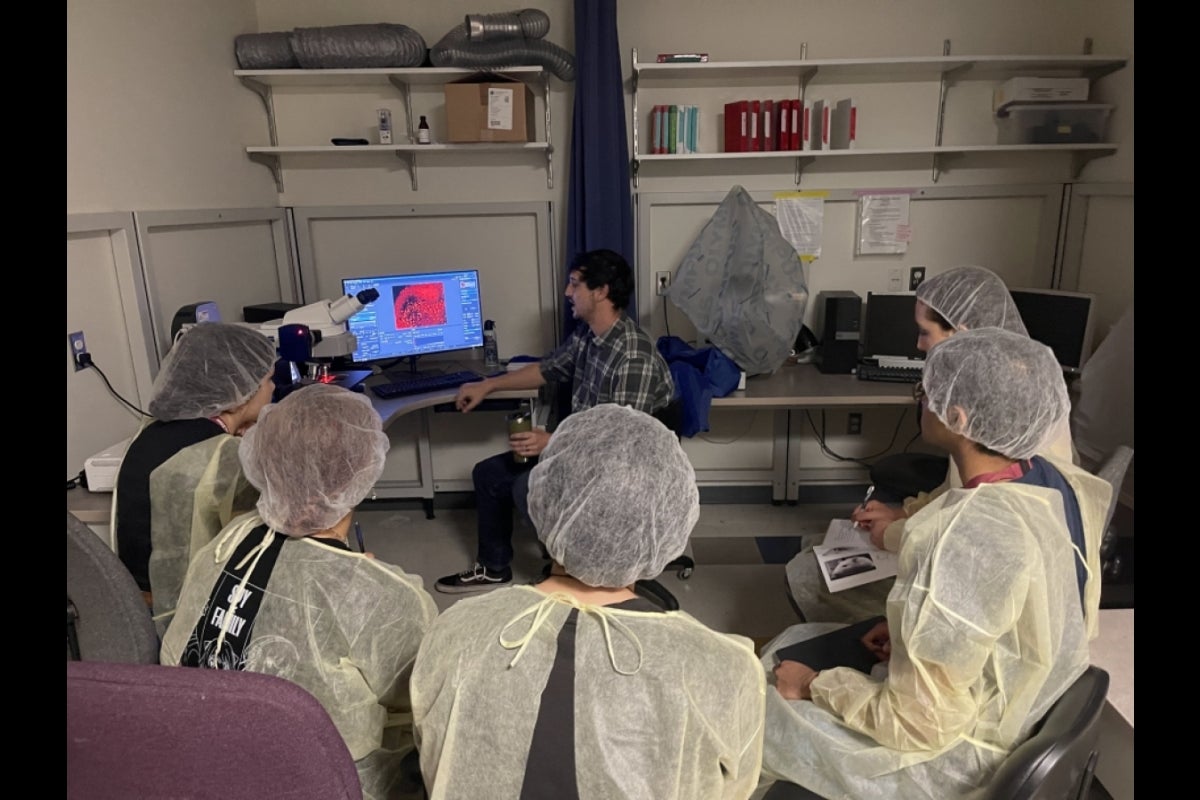Workshop introduces high school students to Alzheimer's research

High school seniors from Desert Vista High School and Horizon Honors Secondary School recently participated in the 2022 Arizona Alzheimer’s Disease Research Center Junior Fellow workshop hosted by the Arizona State University Department of Psychology on Sept. 5.
You don’t know what you don’t know. This simple fact is a big reason the potential of many bright minds remains untapped. When it comes to the field of neuroscience, Heather Bimonte-Nelson is determined to change that.
“One of the major challenges with building a more diverse pipeline of passionate researchers is giving potential future scholars access early on in their academic careers so that they can experience the excitement of performing research in psychology and neuroscience,” said Bimonte-Nelson, Arizona State University President’s Professor of psychology and co-director of the Research Education Component of the Arizona Alzheimer’s Disease Research Center (AZ ADRC).
In December 2021, the AZ ADRC received a $15.7 million NIH grant, which included support for the development of a pathway for students from diverse backgrounds to learn about Alzheimer’s disease research and care.
Bimonte-Nelson is also on the national ADRC Research Education Component's Supporting Diversity Leadership Workgroup, where the scientists collaboratively discuss ideas to provide training opportunities for the next generation of researchers, with a focus on diversity and inclusion. Bimonte-Nelson collaborates with Eric Reiman, MD, executive director of the Banner Alzheimer’s Institute and director of the AZ ADRC, and Roberta Brinton from the University of Arizona, co-director with Bimonte-Nelson of the Research Education Component of the grant, to provide training opportunities for such students.
One of those opportunities took place this month when the ASU Department of Psychology hosted a group of five high school seniors from Desert Vista High School and Horizon Honors Secondary School for the 2022 Arizona Alzheimer’s Disease Research Center Junior Fellows workshop on Sept. 5.
The students — Sarah Juvera, Dani Khatib, Rheana Andaya, Rohan Bulusu and Celeste Burkholder — had not previously participated in a research lab but were nominated by teachers to become designated as Junior Fellows. Prior to arriving at the workshop, they were given medical journal papers and a few chapters of reading in order to prepare for the hands-on training and the upcoming ADRC conference.
“I wanted to hold a workshop where selected students could come to ASU and spend the day in my lab looking into high-powered microscopes to see brain tissues, dissect a brain and learn about memory processing and neurodegenerative disease, as well as normal aging,” Bimonte-Nelson said.
Bimonte-Nelson conducts research on how hormones like estrogen or progesterone affect the brain and if their presence or absence changes brain structure across the lifespan. She wants to know what role hormones play in the differences between male and female brains, including conducting groundbreaking research on hysterectomies and their potential impact on memory with aging.
READ MORE: A brain road trip: Exploring the neural map
As part the workshop, she gave the students a tour of her Behavioral Neuroscience of Memory and Aging Lab and introduced them to other scientists at ASU doing psychology and neuroscience research.
One of those scientists was doctoral student Tristan Lyle, who works in the SOCIAL (Study of Circuits in the Adolescent Life) Neurobiology Lab with Assistant Professor Jessica Verpeut. Lyle shared about neural manipulation techniques and machine learning, and showed the high school students glowing fluorescent neurons from mouse brains under a microscope.
Veronica Pena, a senior PhD student in the Bimonte-Nelson laboratory, gave the high school students a presentation on Alzheimer’s disease, including behavior symptoms and pathology changes that occur in the brain, and went in-depth about aging in the brain as well.
The experience was memorable and inspirational for the high school scholars.
“As someone who is still exploring my interests in the medical field, the ADRC workshop really gave me a chance to peer into the neuroscience world and discover what it feels like to work in a lab,” Andaya said. “Not only was I captivated by the passionate neuroscientists I met, but I was also given multiple hands-on experiences I would have only done years into college if it were not for the workshop.”
“Each activity was unique and gave me more interest in understanding science and the complexities of the brain," said Burkholder, who plans on attending the Edson College of Nursing and Health Innovation at ASU next fall. "I now know much more about memory, experimental protocol and neurodegenerative disease complexities. Learning about memory processing and consolidation was fascinating, as these are vital functions that make us who we are."
Following the workshop, the students were paired with graduate student mentors from the Bimonte-Nelson lab and will attend the Arizona Alzheimer’s Consortium 2022 Annual Scientific Conference on Sept. 22.
“I am so proud of our inaugural AZ ADRC Junior Fellows," Bimonte-Nelson said. "They have already shown that they are extraordinary thinkers with a passion to learn science, to lead and to contribute to society in positive ways. Spending nearly 10 hours with this group over the last two weeks, between our meetings and the in-person workshop, reminded me how bright our future is due to this next generation of scholars.
"I can’t wait to see what they accomplish, and I will be here every step of the way to provide whatever mentorship and support I can."
More Science and technology

4 ASU researchers named senior members of the National Academy of Inventors
The National Academy of Inventors recently named four Arizona State University researchers as senior members to the prestigious…

Transforming Arizona’s highways for a smoother drive
Imagine you’re driving down a smooth stretch of road. Your tires have firm traction. There are no potholes you need to swerve to…

The Sun Devil who revolutionized kitty litter
If you have a cat, there’s a good chance you’re benefiting from the work of an Arizona State University alumna. In honor of…




